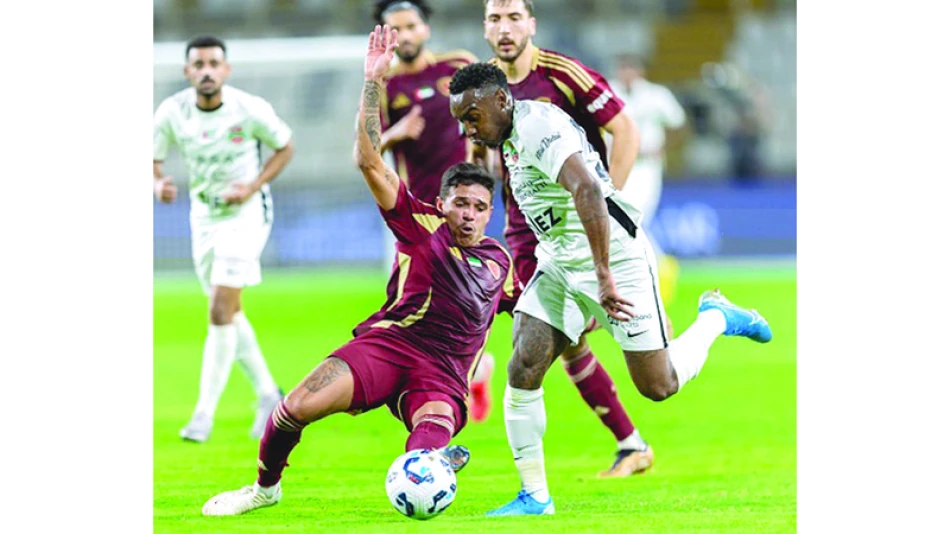
Ahly's Youngsters Aim to Break Curse Against Al-Wahda in Portuguese-Inspired Clash
Portuguese Coaches Lead UAE League's Battle to Break Historical Curses
The UAE's ADNOC Pro League enters its second round with three compelling matchups that could reshape early season standings. Portuguese tacticians take center stage as Al Wahda and Shabab Al Ahli seek to break stubborn historical patterns at Al Nahyan Stadium, while newly promoted Dibba faces an uphill battle against Al Ain's resurgent attack.
Al Wahda vs Shabab Al Ahli: 16 Years of Frustration
The evening's marquee fixture carries extraordinary historical weight. Al Wahda hasn't defeated Shabab Al Ahli at home since September 28, 2009, when Brazilian striker Fernando Piano scored twice in a memorable 3-1 victory. That triumph came during Al Wahda's last league title-winning campaign, making tonight's clash particularly symbolic for the Abu Dhabi club.
The Portuguese Factor
Both teams enter under Portuguese management, adding tactical intrigue to the historical narrative. Al Wahda's new coach José Morais faces immediate pressure to deliver the club's first home victory over their Dubai rivals in 16 years. Meanwhile, Paulo Sousa must guide Shabab Al Ahli past their own psychological barrier—seven consecutive draws against Al Wahda at Al Nahyan Stadium.
This pattern of stalemates reflects the tactical evolution of UAE football, where defensive organization has increasingly neutralized attacking threats. The recent encounters tell a story of tactical caution: goalless draws in 2017-18 and 2021-22, punctuated by entertaining but inconclusive affairs like last season's 3-3 thriller.
Stakes Beyond Three Points
Both clubs won their opening fixtures 2-0, positioning this as an early title race indicator. In the modern UAE league, where financial parity has increased competitiveness, early momentum often proves decisive. The winner maintains perfect records and psychological advantages that could prove valuable in May's title race.
Dibba's David vs Goliath Challenge
Dibba Al Fujairah faces a different type of historical burden against Al Ain. The minnows have managed just two victories in 12 professional league encounters with "The Boss," including a notable 2-1 upset in 2016-17 that remains their most significant scalp.
Al Ain's Attacking Revival
Al Ain's 2-1 opening victory over Al Bataeh showcased their offensive potential despite having three goals disallowed. Star striker Laba Kodjo's return to form signals dangerous intent from a club traditionally strong in continental competition. For Dibba, containing Al Ain's attacking transitions while creating chances of their own represents a tactical puzzle that has confounded bigger clubs.
Dibba's 3-1 opening defeat to Sharjah, despite a competitive first-half display, highlighted both their potential and limitations. Against Al Ain's superior individual quality, they'll need tactical discipline and clinical finishing—qualities that define successful underdog performances across global football.
Al Wasl's Portuguese Revolution
Al Wasl's transformation under Luis Castro continues against Al Dhafra, with the Dubai club's new identity taking shape. Castro's emphasis on attacking football, evident in their 2-0 victory over Bani Yas, represents a philosophical shift toward the possession-based approach that has succeeded across Portuguese coaching exports globally.
New Signings, New Expectations
The early impact of foreign additions Adelson Silva and Pedro Malheiro suggests Al Wasl's recruitment strategy prioritized technical quality over marquee names. This approach mirrors successful Gulf clubs like Al Hilal and Al Sadd, who've built sustained success through shrewd signings rather than headline transfers.
Al Dhafra, returning to top-flight football, faces the classic promoted club dilemma: balancing survival instincts with ambition. Their opening defeat to champions Shabab Al Ahli exposed areas needing improvement, particularly in ball retention and finishing accuracy identified by coach Zeljko Petrovic.
Market Implications and Broader Context
These fixtures reflect the UAE league's ongoing evolution toward tactical sophistication and competitive balance. The prevalence of Portuguese coaches—following successful models in Qatar and Saudi Arabia—indicates strategic thinking from UAE clubs seeking European tactical expertise without astronomical costs.
For investors and stakeholders, early season patterns often predict commercial success. Clubs maintaining strong starts typically see increased sponsorship interest and fan engagement, crucial factors in the UAE's competitive sports entertainment market. Tonight's results could establish early hierarchies that influence everything from player valuations to broadcast ratings throughout the campaign.
Most Viewed News

 Sara Khaled
Sara Khaled






